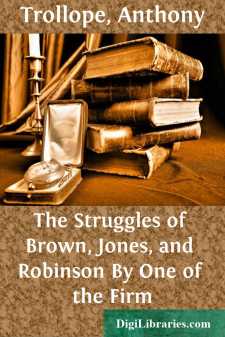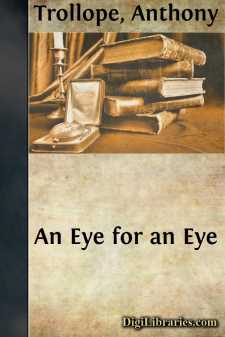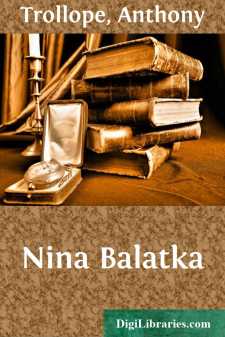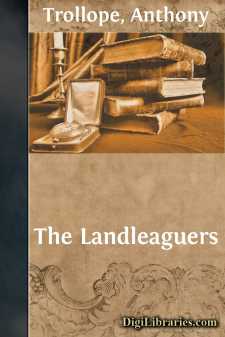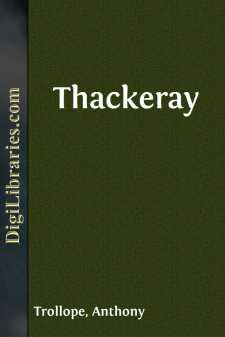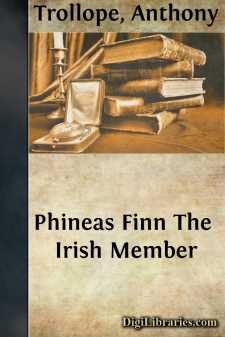Categories
- Antiques & Collectibles 13
- Architecture 36
- Art 48
- Bibles 22
- Biography & Autobiography 813
- Body, Mind & Spirit 142
- Business & Economics 28
- Children's Books 14
- Children's Fiction 11
- Computers 4
- Cooking 94
- Crafts & Hobbies 4
- Drama 346
- Education 46
- Family & Relationships 57
- Fiction 11829
- Games 19
- Gardening 17
- Health & Fitness 34
- History 1377
- House & Home 1
- Humor 147
- Juvenile Fiction 1873
- Juvenile Nonfiction 202
- Language Arts & Disciplines 88
- Law 16
- Literary Collections 686
- Literary Criticism 179
- Mathematics 13
- Medical 41
- Music 40
- Nature 179
- Non-Classifiable 1768
- Performing Arts 7
- Periodicals 1453
- Philosophy 64
- Photography 2
- Poetry 896
- Political Science 203
- Psychology 42
- Reference 154
- Religion 513
- Science 126
- Self-Help 84
- Social Science 81
- Sports & Recreation 34
- Study Aids 3
- Technology & Engineering 59
- Transportation 23
- Travel 463
- True Crime 29
Anthony Trollope
Anthony Trollope (1815-1882) was a prolific English novelist best known for his series of novels set in the fictional county of Barsetshire, including "Barchester Towers" and "The Last Chronicle of Barset." His works, often exploring the intricacies of Victorian society and politics, feature complex characters and detailed social commentary. Trollope also had a notable career in the British postal service, where he is credited with introducing the red pillar box (mailbox).
Author's Books:
Sort by:
by:
Anthony Trollope
PREFACE It may be well that I should put a short preface to this book. In the summer of 1878 my father told me that he had written a memoir of his own life. He did not speak about it at length, but said that he had written me a letter, not to be opened until after his death, containing instructions for publication. This letter was dated 30th April, 1876. I will give here as much of it as concerns the...
more...
by:
Anthony Trollope
PREFACE. BY ONE OF THE FIRM. It will be observed by the literary and commercial world that, in this transaction, the name of the really responsible party does not show on the title-page. I—George Robinson—am that party. When our Mr. Jones objected to the publication of these memoirs unless they appeared as coming from the firm itself, I at once gave way. I had no wish to offend the firm, and,...
more...
by:
Anthony Trollope
Chapter I Hiram's Hospital The Rev. Septimus Harding was, a few years since, a beneficed clergyman residing in the cathedral town of ––––; let us call it Barchester. Were we to name Wells or Salisbury, Exeter, Hereford, or Gloucester, it might be presumed that something personal was intended; and as this tale will refer mainly to the cathedral dignitaries of the town in question, we are...
more...
by:
Anthony Trollope
Introduction. At a private asylum in the west of England there lives, and has lived for some years past, an unfortunate lady, as to whom there has long since ceased to be any hope that she should ever live elsewhere. Indeed, there is no one left belonging to her by whom the indulgence of such a hope on her behalf could be cherished. Friends she has none; and her own condition is such, that she recks...
more...
by:
Anthony Trollope
INTRODUCTION Anthony Trollope was an established novelist of great renown when Nina Balatka was published in 1866, twenty years after his first novel. Except for La Vendée, his third novel, set in France during the Revolution, all his previous works were set in England or Ireland and dealt with the upper levels of society: the nobility and the landed gentry (wealthy or impoverished), and a few...
more...
by:
Anthony Trollope
MR. JONES OF CASTLE MORONY. In the year 1850 the two estates of Ballintubber and Morony were sold to Mr. Philip Jones, under the Estates Court, which had then been established. They had been the property of two different owners, but lay conveniently so as to make one possession for one proprietor. They were in the County Galway, and lay to the right and left of the road which runs down from the...
more...
by:
Anthony Trollope
CHAPTER I Dillsborough I never could understand why anybody should ever have begun to live at Dillsborough, or why the population there should have been at any time recruited by new comers. That a man with a family should cling to a house in which he has once established himself is intelligible. The butcher who supplied Dillsborough, or the baker, or the ironmonger, though he might not drive what is...
more...
by:
Anthony Trollope
CHAPTER I. BIOGRAPHICAL. In the foregoing volumes of this series of English Men of Letters, and in other works of a similar nature which have appeared lately as to the Ancient Classics and Foreign Classics, biography has naturally been, if not the leading, at any rate a considerable element. The desire is common to all readers to know not only what a great writer has written, but also of what nature...
more...
by:
Anthony Trollope
Ferdinand Lopez It is certainly of service to a man to know who were his grandfathers and who were his grandmothers if he entertain an ambition to move in the upper circles of society, and also of service to be able to speak of them as of persons who were themselves somebodies in their time. No doubt we all entertain great respect for those who by their own energies have raised themselves in the...
more...
by:
Anthony Trollope
CHAPTER I Dr. Finn, of Killaloe, in county Clare, was as well known in those parts,—the confines, that is, of the counties Clare, Limerick, Tipperary, and Galway,—as was the bishop himself who lived in the same town, and was as much respected. Many said that the doctor was the richer man of the two, and the practice of his profession was extended over almost as wide a district. Indeed the bishop...
more...



